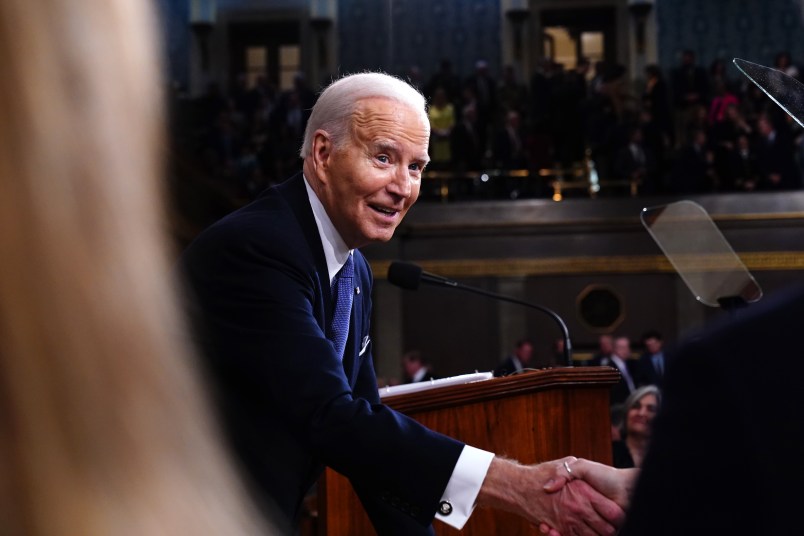I confess I’m as much entertained as surprised that Madison Cawthorn’s lawyer is taking this tack to defend his standing to serve in the House of Representatives. James Bopp Jr., a storied right-wing power lawyer, argues that Congress already issued a blanket amnesty to all insurrectionists back in 1872. So Madison is good to go in terms of serving in Congress. Bopp is granting — at least for the sake of argument — that Cawthorn did commit insurrection. It amounts to saying: ‘Congress already absolved young Mr. Cawthorn back during the Grant administration for any insurrections he might do. So whether he committed a rebellion against the United States last January is moot.’
I haven’t been holding my breath to see Cawthorn barred from serving in Congress. But I did not anticipate this line of defense — to put it mildly. If nothing else, it seems distinctly off-message for Bopp, if not for Cawthorn. Again, big time right-wing power lawyer! Not some Trumper freakshow bumped off the turnip truck.
I went back and looked at the text of the congressional act. The background is this: The Fourteenth Amendment barred everyone who participated in the rebellion from holding office if they’d held any elective or appointed office before the Civil War. It also allowed Congress by a two-thirds vote to waive or pardon these penalties. So in 1872 Congress did just that as part of the general process of allowing former insurrectionists to reenter the political life.
Congress made it a blanket amnesty with the exception of members of Congress elected to serve from 1859 to 1863 and holders of positions of high trust in the U.S. government. Many of the people who were excepted from this general pardon later received individual ones.
It’s true that the congressional act does not explicitly refer to the rebellion we call the U.S. Civil War. It might thus be a legitimate interpretation that if there was someone else who had participated in a rebellion against the United States in say 1850 and we hadn’t heard about it that that guy would be in luck. Maybe the same for 1870. But for 2021? There’s no way this amnesty was intended to let yahoos who wouldn’t be born for another century off the hook and give them a kind of insurrection mulligan on the house.
But we don’t have to rely on logic and intent. Bopp’s argument is that Congress just got rid of those penalties entirely. But that’s clearly not the case. The amendment made specific provision for a future Congress to pardon these penalties by a two-thirds vote. Congress used that two-thirds threshold. So Congress wasn’t getting rid of that whole provision. It was operating within the powers the provision granted it. No one at the time thought that Congress was overriding that part of the Fourteenth Amendment. And it wouldn’t matter if they did. Because Congress can’t amend the constitution with a statute. Any lawyer knows this. Anyone with a grade school level civics education knows this. That’s not how it works.
Whether Cawthorn’s actions amounted to engaging “in insurrection or rebellion against the [constitution of the United States], or giv[ing] aid or comfort to the enemies thereof” is a legitimate question. There’s no credible argument that Congress okayed insurrections for the rest of time with a act in 1872.

 Members-Only Article
Members-Only Article



